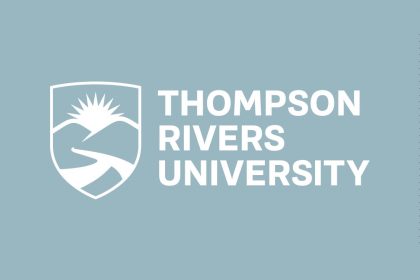This is our third of five blog posts from the University of the Fraser Valley (UFV) in our Ditch the Final Exam series. If you missed our first two stories, find them here: Part 1: Stefania Pizzirani and Part 2: RoseAnne Timbrell.
By Claire Hay and Helena Prins
This week we introduce you to Michael Corman, a champion facilitator who transformed the traditional high-stakes final exam of his sociology course into a take-home reflective final exam with student choice on presentation of information.
Dr. Michael K. Corman is an assistant professor of sociology in the Social, Cultural, and Media Studies department at UVF. Dr. Corman’s teaching and research interests include a variety of topics that intersect with the sociological study of health, illness, and society. Dr. Corman’s research has appeared in Perspectives on Medical Education, Social Theory & Health, Symbolic Interaction, Journal of Contemporary Ethnography, Qualitative Health Research, International Journal of Educational Research, Families in Society: The Journal of Contemporary Social Services, and International Journal of Social Sciences as well as multiple edited book volumes. He recently published a book with the University of Toronto Press entitled Paramedics On and Off the Streets: Emergency Medical Services in the Age of Technological Governance.
Michael likes to think outside the box, and ditching his final exam gave him the opportunity to do just that. He says it was fun to think of exams in a different way and to allow students to show their strengths. In fact, he received emails from students commenting on the fact that they were having fun! What surprised him was that he, too, had fun grading their assignments. Yes, you read that right: he had fun grading final assignments!
Michael was motivated to come up with alternative assessments and chose to use take-home exams rather than traditional exams to increase the inclusivity of the assessment, consider issues of diversity and equity, and create something that was fun for both instructor and students.
The assignment was to provide a critical reflection of living through a pandemic that included a description of a “day in your life” and also connected theoretical concepts covered in class. It included an optional performance piece with options and flexibility for students to make the exam their own and show their creativity.
His biggest challenge was to create a new grading rubric that would support the performance piece should students take that option. He worked this through with support from the UFV Teaching and Learning Centre as he wanted to make sure the take-home exam did not harm; student well-being was key. The rubric helped him organize his thoughts and created transparency, minimizing the “what ifs.” Students were clear about expectations.
Michael acknowledges that the UFV Teaching and Learning Centre is frequently an important factor in this success story. He encourages faculty to reach out to the learning and teaching centres in their institutions when thinking about change, especially when looking for the confidence or permission to do something different.
Listen to Michael’s story here:
Top tips from Michael’s story:
- Make sure assignments reflect the diversity of course content.
- Creating a fun assignment for students makes grading more fun, too!
- Adding a performative component to an assessment allows students to take up content in nuanced, complex, and complicated ways.
Inspired to re-examine your exams? Take the FLO Bootcamp Alternative Assessment Challenge!
Do you have a success story of using alternative assessments to replace the high-stakes final exam in your course? Want to share your story? We invite you to contact Helena Prins, advisor, Learning and Teaching, at BCcampus.
Learn more:
- Effectively Moving Away from Traditional Proctored Exams in First-Year Physics Courses
- Exams: Who are we leaving out?
- On the Front Lines of the Pivot to Online: Measuring the Real Impact of Alternative Assessment in Remote Learning
The feature image for this post (viewable in the BCcampus News section at the bottom of our homepage) is by Pew Nguyen from Pexels
